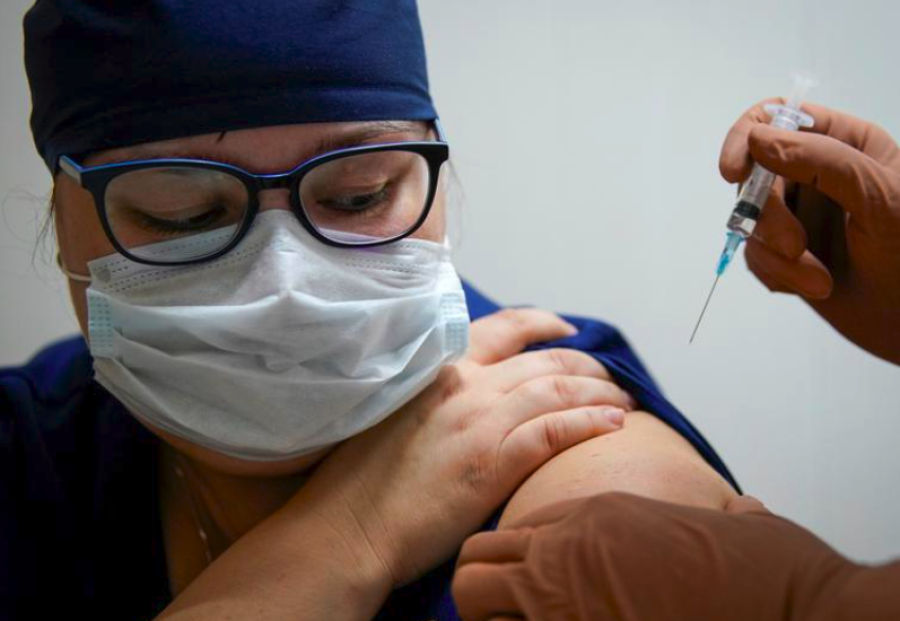Health
Health Ministry preparing legal grounds to roll out Covid-19 vaccines
A proposal has been sent to the Cabinet to allow the use of vaccines after they are certified for emergency use.
Arjun Poudel
As new cases of Covid-19 rise throughout the country, the Ministry of Health and Population is preparing legal grounds to roll-out Covid-19 vaccines even if vaccine candidates are certified only for emergency use.
The ministry, which has been criticised over its poor handling of the pandemic, has sent a proposal to the Cabinet to issue an ordinance to cover legal issues related to a potential vaccine.
“We have sent a proposal to Cabinet to prepare an ordinance to allow the use of Covid-19 vaccines after they are certified for emergency use,” Dr Roshan Pokhrel, chief specialist at ministry, told the Post.
The total Covid-19 cases reported in the country crossed the 200,000 mark on Wednesday with 2,569 new infections confirmed in the past 24 hours. According to the ministry, 202,329 people have been infected with coronavirus throughout the country, and 1,174 have died so far. The active cases count has reached 38,912.
Chief specialist Pokhrel said that the proposal was sent to the Cabinet in advance to avoid legal complications (such as the ones faced during the roll-out of antiviral medicine remdesivir).
The Department of Drug Administration, the national regulator of the drug market, in September authorised the import and usage of remdesivir for treatment of Covid-19 patients as a study drug after doctors treating infected patients pressed the government to do so.
As the department issued permission to use the drug, even before importing the drug was made legal, kin of the seriously-infected patients were forced to pay exorbitant prices for the drug, which had to be brought in through informal channels.
“We have not yet decided about the company that will supply us the vaccines, some of which are in their third phase trial. We have also not decided on the number of doses to purchase,” added Pokhrel.
On Monday, the US drugmaker Pifzer and a German biotech firm BioNTech announced that the vaccine candidate they developed was found to be more than 90 percent effective in preventing participants without evidence of Sars-COV-2 from developing the infection in first interim efficacy analysis.
Vaccines against Sars-COV-2 are being developed by over half a dozen companies including, Chinese, Indian, Russian and American.
A high-level committee has also been formed comprising secretaries from the Ministry of Health and Population, Ministry of Foreign Affairs and Ministry of Finance to decide on the import of Covid-19 vaccines.
Public health experts say that along with the import and use of vaccines after they are certified by agencies such as the World Health Organization and US Food and Drug Administration, authorities should keep stressing contact tracing, testing and enforcing safety measures.
“Authorities should continue preventive measures—testing, contact tracing, enforcing safety measures and increasing hospital beds and equipment,” Dr GD Thakur, former director at the Epidemiology and Disease Control Division, told the Post.
“It may take time for the vaccine to be approved and we may not get it immediately as other countries have already booked a high volume of doses.”
“We should not stop adhering to preventive measures—the only way to contain the spread of the virus at present.”
Meanwhile, the strain of coronavirus, which has already killed over 1,170 people throughout the country, has been found to be different from the one first detected in China.
According to results from the whole-genome sequencing performed by Nepal Health Research Council, the coronavirus strain being spread in Nepal matches with the virus detected in India, West Asia and Europe.
“The virus currently being spread in Nepal didn't match the one first detected in Wuhan of China,” an official at the Health Ministry told the Post.
The Health Ministry had tasked the Council in June to sequence the genome of the virus. Researchers had collected samples from infected people of different age groups and locations. Swab samples of people who died due to Covid-19 were also collected and sent to the World Health Organization’s reference laboratory in Hong Kong for the process.




 18.12°C Kathmandu
18.12°C Kathmandu















